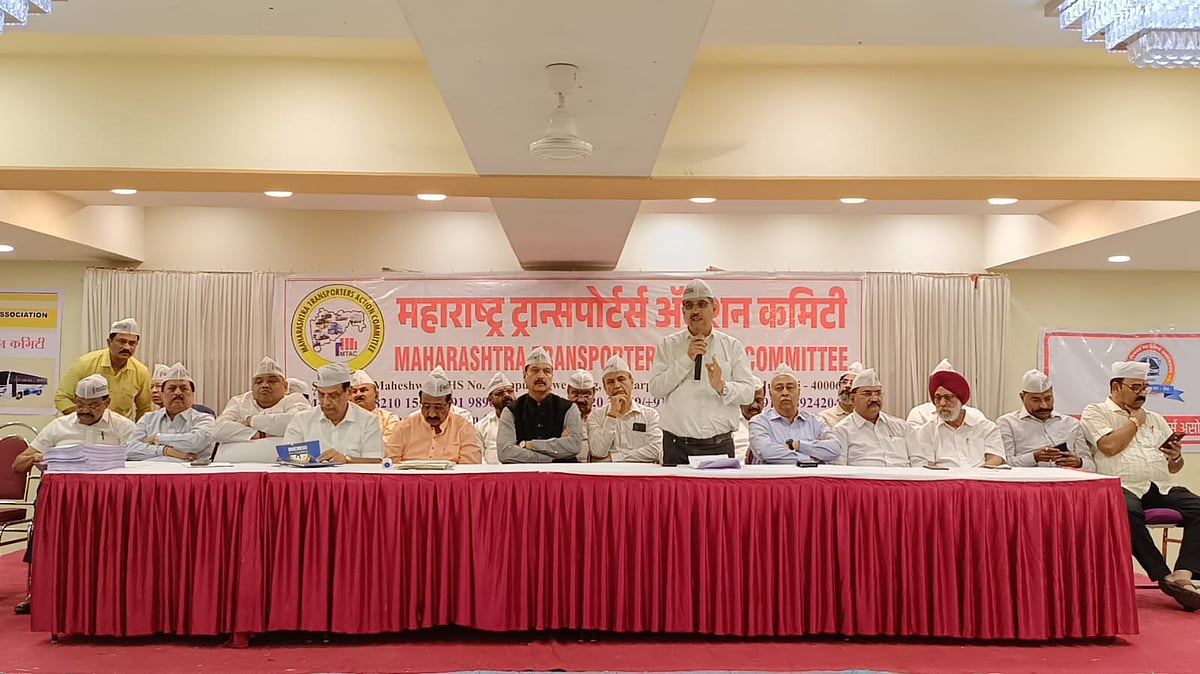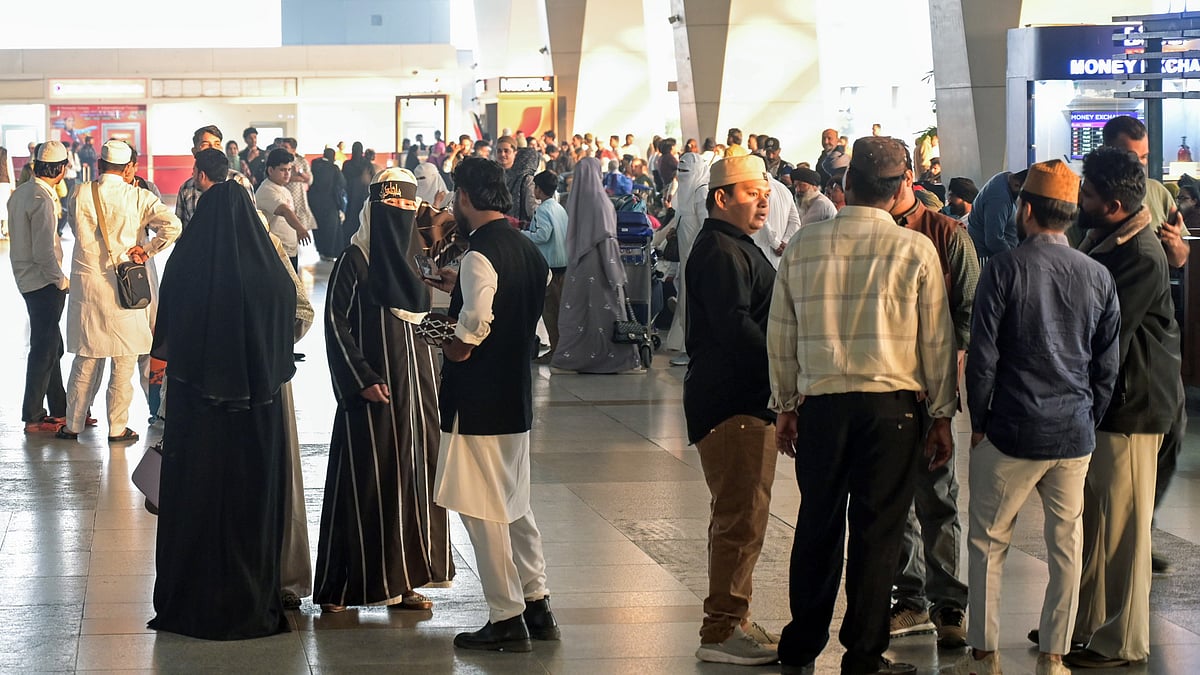The Prevention of Corruption Act (PCA), 1988, has miserably failed to stymie corruption in high places such as among cabinet ministers or chief ministers of various states because they are in charge of the police. This means they misuse the police to dilute or thwart investigations against themselves, by intimidating witnesses or destroying evidence. They then muddy the waters by making counter-allegations against political rivals to feign innocence so the gullible citizen does not know who is corrupt.
This has come to the fore yet again with the Enforcement Directorate (ED) being accused of acting as a tool of the Union Government by Shiv Sena MLA from Thane Pratap Sarnaik, whose residence and offices were raided by the ED on November 24. He quarantined himself citing Covid-19 rules when his premises were raided during his sojourn in Goa.
Sarnaik asked the ED from Goa for a week's time to meet the sleuths, stating his son Vihang Sarnaik's wife was hospitalised due to hypertension caused by the raids. It becomes obvious Sarnaik was buying time to hire expert lawyers who will advise him what not to say and how to say it when the ED sleuths confront him.
The ED began their probe on the basis of a case registered with the Economic Offences Wing (EOW) of the Mumbai Police in October against Tops Group Security, whose promoter is Rahul Nanda, among others. The FIR filed with the Mumbai EOW is by a former employee of the Tops Group.
This FIR, registered on October 28, alleged the Maharashtra Metropolitan Region Development Authority (MMRDA) was cheated by Tops Group to the tune of Rs 175 crore after it was given a contract to provide security guards for MMRDA sites. ED officials alleged Sarnaik, who is an old friend of Nanda, had allegedly helped him in getting the contract from MMRDA. What makes this case very interesting is that it was Sarnaik who lodged a breach of privilege motion against loudspeaker anchor Arnab Goswami.
In September 2020, Sarnaik had moved the motion against Goswami objecting to the manner in which the television anchor referred to chief minister Uddhav Thackeray and his son Aditya Thackeray during his coverage of actor Sushant Singh Rajput’s suicide. Goswami was reportedly sent several notices seeking his reply. Sarnaik alleged Goswami’s alleged ignoring of these notices was itself another breach of privilege.
“The day I moved a privilege motion against Kangana Ranaut and Arnab Goswami, and demanded reopening of the Anvay Naik suicide case (against Goswami), I knew my fate. I am a Shiv Sainik and a fighter who has reached this far. Uddhavsaheb has made me the Shiv Sena spokesperson to project the party’s views. Today, they told my son [Vihang] your father speaks a lot of Kangana Ranaut and Arnab Goswami. I will continue to speak wherever Mumbai, Maharashtra or its police are maligned. I have done nothing wrong in my business,” he declared to a news channel.
Tops Group chairman and founder Rahul (Diwan) Nanda admitted Pratap Sarnaik was an old friend but said he had not invested a single paisa in his business. He denied the Shiv Sena had links with his business.
Similarly in Goa, Porvorim MLA and ex-cabinet minister Rohan Khaunte was arrested late at night in February, for allegedly assaulting BJP spokesman Premanand Mhambrey and threatening him, after the latter held a press conference divulging that the MLA owned 18 companies with the registered head office as a residential flat in Panjim. Mhambrey alleged in the press conference that Khaunte was not paying commercial taxes which he was liable to pay.
After an alleged drug dealer, Shailesh Shetty, was arrested by police, Khaunte told the media, “Shailesh Shetty was, is and will be my friend.” Shetty was earlier accused of phoning a deputy SP of police Kiran Poduwal not to send a police jeep during a site inspection in the village of Salvador do Mundo during 2018, to ensure two persons were beaten up. But Khaunte hurls counter-allegations against Goa chief minister Pramod Sawant to camouflage his alleged transgressions from the people.
Like Sarnaik and Khaunte, former Karnataka chief minister B S Yediyurappa was jailed for alleged corruption, as was the late Tamil Nadu Chief Minister J Jayalalithaa and her aide Sasikala, who was recently released from jail. Former Jammu & Kashmir Chief Minister Farooq Abdullah has also been accused of being involved in a land scam in that state. Jailed former Bihar Chief Minister Laloo Prasad Yadav has been accused of phoning a BJP MLA to “fix” the election for the post of speaker in that state.
The list is endless. The point here is that the PCA is a toothless tiger because section 17 of the Act mandates that only a police inspector of the state police or a deputy superintendent of the CBI must seek permission of a magistrate or the okay of the state government to probe a case against high-ranking public servants. By the time this approval is sought, the accused knows he is being investigated and destroys or dilutes the evidence against him.
This is why the purpose of the PCA is thwarted, even after it was amended in 1988 with section 4 of the Act laying down that all trials against public servants must be completed within four years of its first hearing. Few trials are completed within this time limit with most trials dragging on for years. Ministers and MLAs misuse the law by approaching the high courts and Supreme Court to quash the FIRs against them. The PCA is aimed against public servants and not against corporate entities in the private sector, such as multi-national corporations whose assets and turnover are equivalent to the revenue of small states in India. To increase its effectiveness, this law has to be totally revamped.
Other laws, such as the Benami Transactions (Prohibition)Act, 1988, which prohibits benami transactions, also need amendments because corrupt public servants continue to hold benami properties after they get elected.
Corrupt lawmakers enact laws to ensure that long-drawn cases result in their acquittals, so the people are deterred from fighting corruption.
Olav Albuquerque holds a PhD in law and is a senior journalist-cum-lawyer of the Bombay high court.




